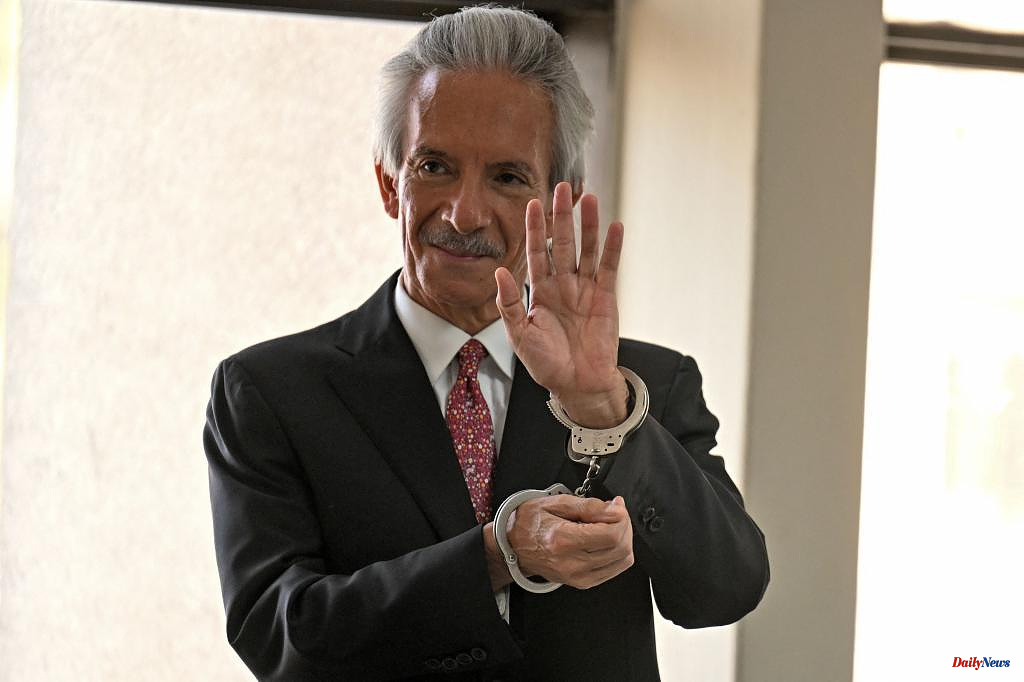The president and founder of the extinct El Periódico, José Rubén Zamora, will face trial again, after the Second Court of Appeals annulled the sentence issued on June 14 by the Eighth Criminal Sentencing Court of Guatemala that sentenced him to six years of incommutable prison terms for money laundering and other assets, while it acquitted him of the crimes of influence peddling and blackmail considering that they had not been able to be accredited by the Prosecutor's Office.
The Second Chamber ordered a repeat of the trial against the journalist after accepting the special appeal for formal reasons filed by the Attorney General's Office (State Attorney's Office) against the sentence of Zamora, who is in preventive detention in the military prison. of Mariscal Zavala since he was arrested on July 29, 2022 at his home, after a raid on the headquarters of the newspaper that published its last edition on May 15 and which in 2021 received the King of Spain to the Featured Media of Ibero-America.
The PGN considered that the Sentencing Court violated the interests of the State of Guatemala "by not issuing a duly motivated and founded sentence, thereby violating the right of defense and criminal action and leaving the State in a state of defenselessness." Specifically, he pointed out that the ruling lacks foundation as it does not comply with article 11 bis of the Criminal Procedure Code, which stipulates that the records and sentences will contain a "clear and precise justification for the decision and its absence constitutes an absolute defect in form." .
The Second Court of Appeals agreed with the PGN by ruling that the Eighth Court issued a ruling that "is not properly motivated and argued in the sections of accreditation of fact, existence of crime and criminal responsibility and thus failed to comply with the requirements." which must contain a sentence for it to have legal effects".
In this sense, it considers that the Court "did not duly and legitimately justify" its decision to acquit Zamora of the crimes of influence peddling and blackmail, as well as to acquit the former prosecutor of the Special Prosecutor's Office Against Impunity Samari Gómez of the crime. disclosure of reserved or confidential information. This means, in the opinion of the Second Chamber, that the sentence handed down "lacks legal validity due to defects in form that constitute absolute grounds for formal annulment", which is why it orders the Ninth Criminal Sentencing Court to set a new day and time for a new trial against Zamora and Gómez.
"It was the Court's obligation to motivate and argue its reasons, as well as the right of the procedural subjects to obtain a clear, precise and concrete explanation of its decision," continues the Second Chamber, which specifies that it does not prejudge the criminal responsibility of the accused, although he insists that the reasons why the journalist and the prosecutor were acquitted of the aforementioned crimes were not reasoned.
In the annulled sentence, the Eighth Court considered proven the Prosecutor's accusation in the sense that Zamora took actions so that the former director of the Workers' Bank Ronald García Navarijo received 300,000 quetzales (37,500 euros) and, he in turn, will get you a check for the same financial amount to deposit in an account of Aldea Global, S.A. of which the owner of El Periódico was the legal representative "and thus be able to dispose of that money whose origin is illicit." The intention, according to one of the judges of the Eighth Court, was to give the money an "appearance of legality to hide its illicit origin," which was an offense "against the national economy and the stability and solidity of the Guatemalan financial system."
On the other hand, the Eighth Court acquitted former prosecutor Samari Gómez of the crime of revealing reserved or confidential information, for whom the Public Ministry requested eight years in prison. The judges considered that "it has not been proven" that Gómez informed the then head of the FECI, Juan Francisco Sandoval, of the cases in which García Navarijo was accused, so that he in turn passed the information to Zamora with the intention of that the journalist blackmailed the banker in exchange for favors.












